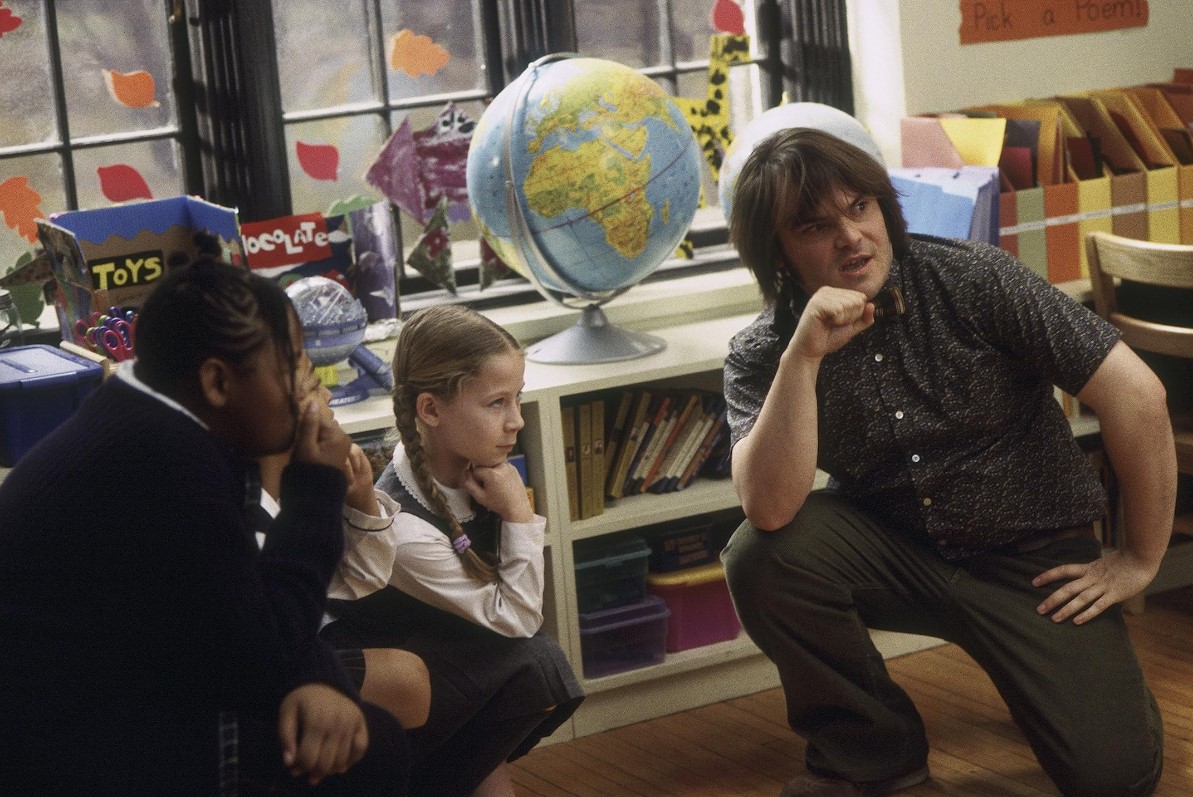Unless it got held back, the 2003 cult classic “School of Rock” would have long since graduated from Jack Black’s school-sanctioned identity theft and musical racketeering program.
Now celebrating its 20th anniversary, “School of Rock” has done something many comedies from the early-to-mid-2000s dared not: age gracefully.
The film stars Black as a down on his luck musician delusionally waiting on his chance to make it big when growing debts and social pressure force him to start thinking outside the box. Impersonating his roommate as a substitute teacher, he accepts a position at Horace Green Prep School where he meets a class of musically gifted students and makes them his newest bandmates.
While many comedies from this era leaned on a raunchy and provocative style of joke-telling and are laced with racial, ethnic and gender stereotypes, “School of Rock” radically preached the idea of self-acceptance.
Early on in the film, Lawrence (Robert Tsai), the keyboard specialist, insists he is not cool enough to be in the band. Black’s character, Dewey Finn, is quick to reassure Lawrence that he does belong in the band and he is in fact cool, with Dewey even dubbing him “Mr. Cool.”
Get The Daily Illini in your inbox!
Another student, Tomika (Maryam Hassan), confesses she is nervous to perform and is wary of judgement from the crowd because of her body type. Again, Finn reaffirms her, citing examples of musical icons who look like her to show her it is insignificant in the grand scheme of things.
What made these moments particularly impactful — especially when watching today — was the fact that Lawrence and Tomika are both people of color. Lawrence is Asian American and Tomika is African American.
In the years since the release of “School of Rock,” there has been a great deal of racial tension in the United States, particularly in the past few years with the Stop Asian Hate and Black Lives Matter movements.
As a result, the filmmakers’ choice to highlight and elevate people of color throughout the film takes on much more meaning.
In an oral history of the film recently published by Rolling Stone, Brian Falduto, who played the band’s stylist, recalled the environment of self-acceptance that the movie fostered during its production.
“To have this experience where we were all made to feel special because of our differences was really cool,” Falduto said. “But then it also made it all the more difficult when we went back to school.”
“School of Rock” is an exciting watch — mainly in seeing the students become more comfortable with themselves and one another as they find and explore new interests, passions and skills, and the possibility of Dewey’s scheme being found out adds a thin layer of tension over each scene.
There is a wholesome beauty in the film, set to a classic rock laden soundtrack — it feels like a history course in classic rock and roll, highlighting different iconic songs and artists from various subgenres across the decades.
The talent of the young cast and Black’s infectious enthusiasm for it are timeless and enamoring to the viewer, with Black providing a relentlessly magnetic performance to boot.
The role would garner Black one of his only two career Golden Globe nominations and is widely-regarded as one of his best by fans and critics alike.
In a 2019 interview with GQ, Black described his role in the film.
“That’s the only time I’ve felt that I was meant to do something,” Black said.






